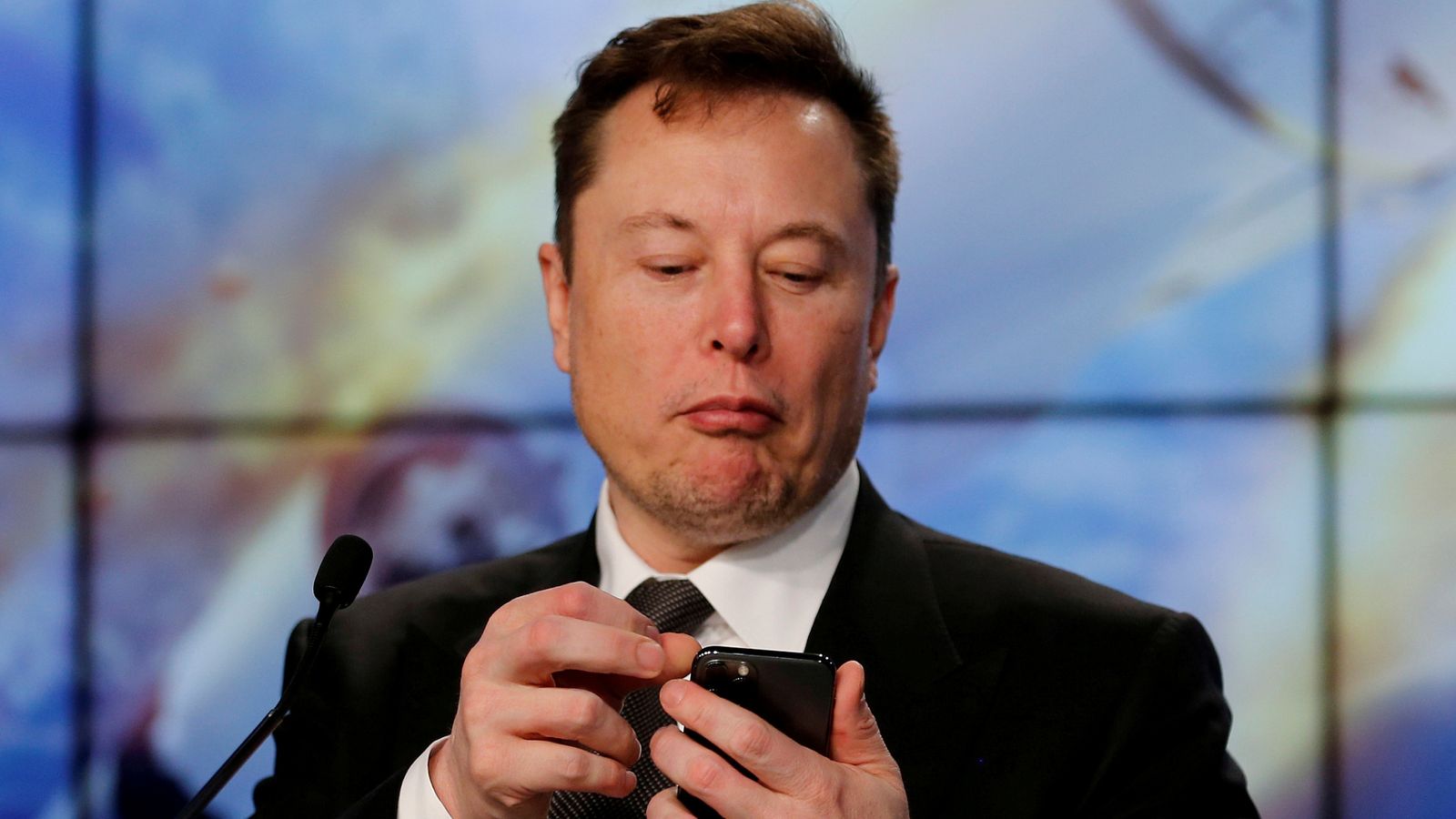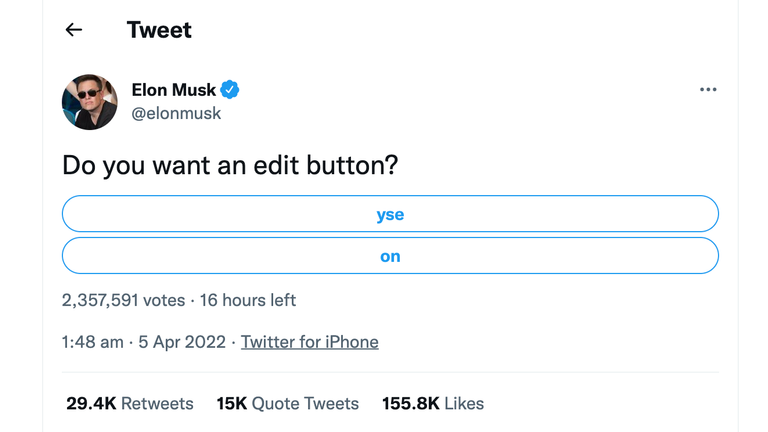Elon Musk, Twitter’s biggest shareholder, has put forward a host of changes to the social media giant’s premium subscription service – including cutting the price and allowing users to pay with the dogecoin cryptocurrency
Twitter Blue launched in July 2021 and is the site’s first subscription service, currently available in the US, Canada, Australia, and New Zealand.
The service, which costs $2.99 (£2.30) per month, gives users a 30-second edit function to revise tweets, the ability to bookmark folders, and a “reader mode” for condensing long threads.
But now the Tesla founder, just days after he disclosed a 9.2% stake in Twitter, has proposed several changes, including cutting the price and allowing users to play with dogecoin and local currency.
Users should also be given a checkmark similar to a blue verification tick, he said.
“Price should probably be [less than] $2/month, but paid 12 months up front & account doesn’t get checkmark for 60 days (watch for credit card chargebacks) & suspended with no refund if used for scam/spam,” Mr Musk tweeted.
“And no ads,” Mr Musk suggested. “The power of corporations to dictate policy is greatly enhanced if Twitter depends on advertising money to survive.”
Twitter declined to comment on his suggestions.
Mr Musk also started a poll on his Twitter account – which has more than 81 million followers – asking whether the firm’s San Francisco headquarters should be converted to a homeless shelter, as “no-one shows up (to work there)”.
The poll got more 300,000 votes in an hour, with 90% answering “yes”.
Read more: Twitter confirms it is working on an edit feature
After disclosing his stake, worth almost $3bn (£2.3bn), Musk was offered a seat on the company’s board of directors, a move which has worried Twitter employees.
Several employees who spoke to Reuters said Musk’s views on moderation could weaken years-long efforts to make Twitter a place of healthy discourse, and might allow trolling and mob attacks to flourish.
In the wake of Donald Trump’s ban from Facebook and Twitter, the billionaire tweeted that many people would be unhappy with US tech companies acting “as the de facto arbiter of free speech”.

